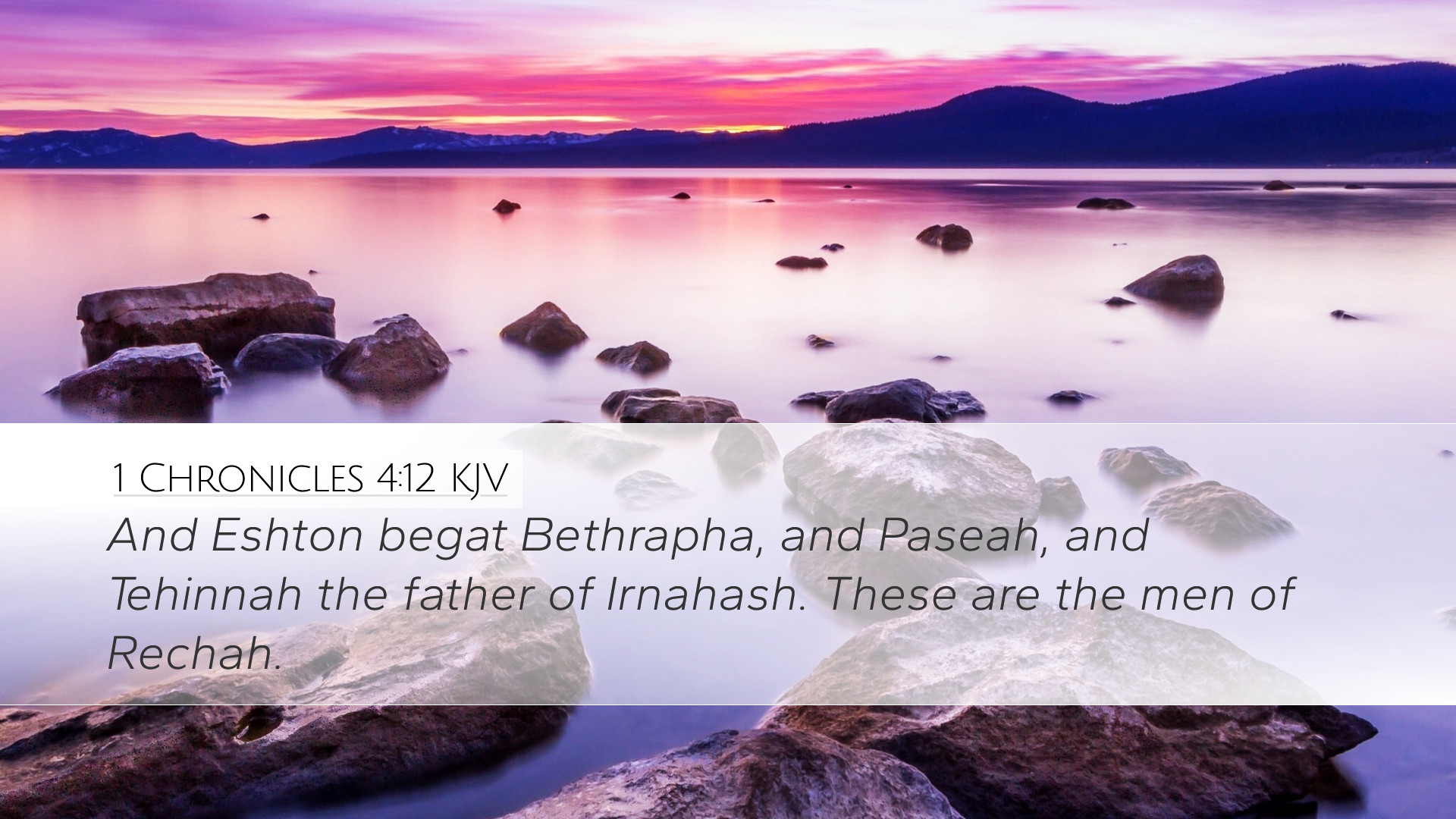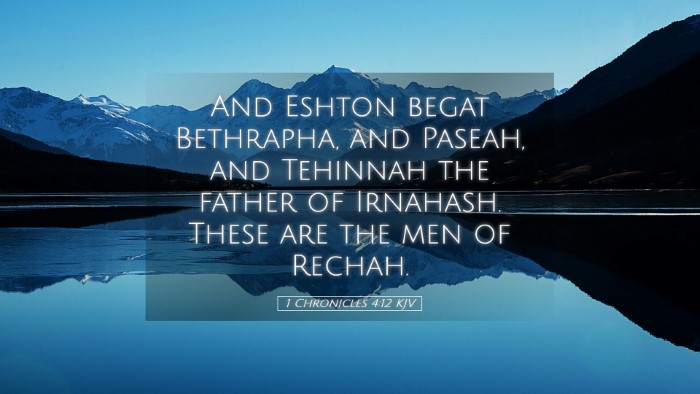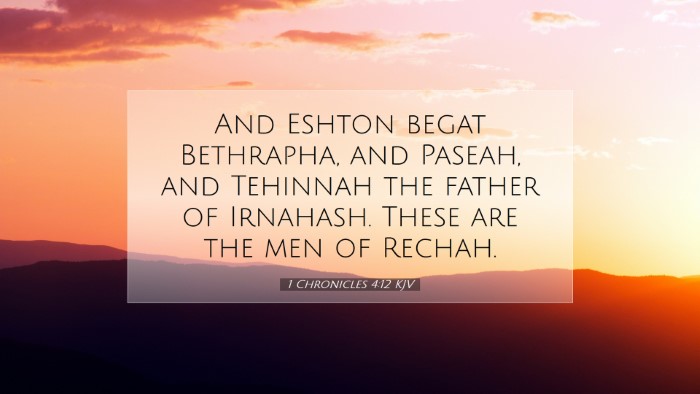Bible Commentary on 1 Chronicles 4:12
Verse Text: "And Esau's son Eliphaz was the father of Te-man; and Te-man, father of Am-alek." (1 Chronicles 4:12)
Introduction
The genealogical records found in the Book of Chronicles serve to trace the lineage of Israel, establishing the historical and spiritual heritage of the people.
1 Chronicles 4:12 presents a concise account of the descendants of Esau, particularly highlighting Eliphaz and his lineage.
This commentary seeks to elucidate the significance of this verse through insights from various public domain sources.
Historical Context
Esau, as noted in the Genesis account, was the elder brother of Jacob, and his descendants—the Edomites—played a crucial role in the narrative of Israel’s history.
Understanding the descendants of Esau, particularly in Chronicles, provides insight into the broader frameworks of prophecy and fulfillment concerning Jacob and Esau's divergent paths.
Verse Analysis
1. Eliphaz
Matthew Henry notes the significance of Eliphaz as a prominent figure among Esau’s sons. Eliphaz represents prosperity and power, as the name itself can be interpreted to mean "God is my strength."
His lineage indicates a royal and influential status among the Edomites. The mention of Eliphaz sets the stage for understanding the dynamics between Israel and Edom.
2. Teman
According to Albert Barnes, Teman is particularly significant in biblical narrative; it becomes synonymous with wisdom (as seen in the book of Job) and is associated with geographic location in Edom.
The descendants of Teman were known for their wisdom, an important trait linking back to the legacy of Esau, who, in contrast to Jacob, was a man of the field.
3. Amalek
Adam Clarke highlights Amalek's critical nature in biblical prophecy and Israel's struggle.
Amalek, as the grandson of Eliphaz, serves as a direct representation of opposition to Israel.
The Amalekites would later become infamous foes of the Israelites, with the command to blot out their memory seen throughout the Torah, echoing the depth of animosity initiated from Esau’s line.
Spiritual Significance
The genealogy in 1 Chronicles 4:12 reiterates a theological motif: God's sovereignty in history and His choice to work through specific families.
The lineage showcases the human condition—how divisions arise and persist across generations.
Through Esau's line, we see the evolving patterns of blessing and rebuke that follow families based on their fidelity to God's covenant.
Theological Implications
- Divine Sovereignty: The verses remind us of God’s choices in history and the unfolding of His redemptive plan even through men like Esau and his descendants.
- Human Conflict: The line between Jacob and Esau symbolizes ongoing conflict between the worldly and the divine call, making it emblematic of larger spiritual battles.
- Genealogical Importance: Chronicles emphasizes the necessity of lineage in understanding our faith heritage, showing how God works through families despite their flaws.
Pastoral Applications
For pastors and church leaders, 1 Chronicles 4:12 serves as a reminder of the importance of family heritage and spiritual legacy.
It encourages leaders to foster environments where their congregations can understand their unique backgrounds while instilling values rooted in biblical teachings.
Concluding Remarks
In closing, 1 Chronicles 4:12, while seemingly a simple genealogy, serves as a gateway to profound theological reflection and historical understanding.
The invocation of Eliphaz, Teman, and Amalek invites believers to ponder the ramifications of their spiritual heritage.
As we engage with this text, let us reflect on our lineage—both in flesh and spirit—and the calling we have in Christ, which transcends the brokenness of our human stories.


